EU-Made Bullets Fired At Iranian Protesters: France 24

Research has revealed that security forces in Iran widely used shotgun cartridges manufactured by a European company against unarmed protesters, killing and injuring dozens.

Research has revealed that security forces in Iran widely used shotgun cartridges manufactured by a European company against unarmed protesters, killing and injuring dozens.
An investigation published by the FRANCE 24 Observers showed that the cartridges made by French-Italian manufacturer Cheddite have been used to crack down on demonstrators in Iran.
To conduct the investigation, the team called on Iranians to send photos of ammunition recovered from protests after the death of Mahsa Amini on September 16.
Over 100 photographs and videos showing tear gas canisters, rifle bullets, paintball projectiles and cartridges from shotguns which have been widely used by Iran’s security forces have been analyzed by the team.
While most of the shotgun shells photographed were made in Iran, 13 shells recovered from eight different Iranian cities bore Cheddite logos, says France 24.
Cheddite has factories in Italy and France, with headquarters in Livorno and Bourg-lès-Valence. The company claims to be the world’s largest maker of empty shotgun cartridges and firing caps, producing more than a billion empty cartridges every year.
While the Islamic Republic is under an arms embargo, the use of ammunition made by two Western countries by its security forces has raised the question of how these bullets reached Iran. Such transactions are considered a clear violation of EU laws.
EU Council Regulation passed on April 12, 2011, prohibits the “export, directly or indirectly, [of] equipment which might be used for internal repression” in Iran, including “firearms, ammunition and related accessories.”
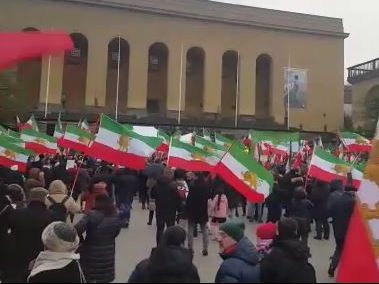
The situation in Iran remained tense Saturday as people closed their businesses to show support for protests and students held sit-ins at different universities.
Following the publication of a joint call by seven universities in Tehran to hold gatherings in support of the people of Kurdish regions, the students of Amirkabir, Tehran, Sharif, Beheshti, and some other universities staged sit-ins and strikes.
The student gatherings were held to protest the killing of people in the Kurdish regions of Iran, the arrest of students, and to show support for antigovernment demonstrators.
Workers also played their roleagain to help the protest movement. Reports say the Truck Drivers’ Union called for a nationwide strike while workers at steel and automobile factories also stopped work on Saturday.
Workers at Esfahan Steel Company, Alvand SarmaAfarin Incorporation, Morattab Car Manufacturing, Safe Khodro Car Manufacturing Company, Qazvin’s Pars Appliances Company, and some others staged strikes during the day.
Esfahan Steel Company is a parent corporation with four thousand employees and a producer of construction steel and rails.
The Free Workers' Union announced that welding workers went on strike at Bafaq Steel Complex in Kerman province in central Iran in protest to non-observance of safety measures that led to an explosion and the death of two of their colleagues.
People protesting in the Sattar Khan district of Tehran Saturday evening
In addition to Tehran there were reports and videos of protests in the central city of Esfahan.
A promising news was that Hossein Ronaghi, the imprisoned civil activist, was released from prison on bail and taken to hospital. The dissident blogger and freedom activistwas arrested over his support for protests late in September, and prison guards broke his legs in detention.
He was arrested several times in the past decade and staged hunger strikes in prison. Ronaghi was first arrested along with his brother Hassan in the aftermath of the disputed presidential elections in 2009 for helping journalists and political activists to circumvent internet censorship. He was also charged with insulting Supreme Leader Ali Khamenei in his blog posts.
Some state media also reported the release of popular Iranian football player Voria Ghaffouri, who was detained by security forces this week after his critical statements regarding the behavior of the Iranian national team members, criticized for not showing any support for protesters and the families of victims killed by security forces.
However, IRNA news agency denied the reports of his release citing “informed sources.”
In the meantime, hundreds of Iranians abroad expressed support for their fellow countrymen by taking into streets in different cities around the world.
As in the past two months, protest rallies were held today in Paris, Milan, Istanbul, Stockholm, Gothenburg, Malmö, Berlin, Frankfurt, Aarhus, Budapest, and more.
The protest rally of Iranians in Milan coincided with the International Day for Prohibition of Violence Against Women.
Protesters chanted slogans against the Islamic Republic and demanded an end to the killing of women and children in Iran.
Iranians living in Stockholm, Sweden also gathered in front of the Swedish Parliament to show solidarity with Iranian Kurds and to protest the killings and repression in Kurdish regions.
Hundreds of Iranians living in Istanbul also held a gathering along with a group of women's rights activists.
In this rally, which was held to express solidarity with the Iranian people, the protesters chanted slogans like “From Istanbul to Tehran, I sacrifice my life for Iran” and “Death to Khamenei.”
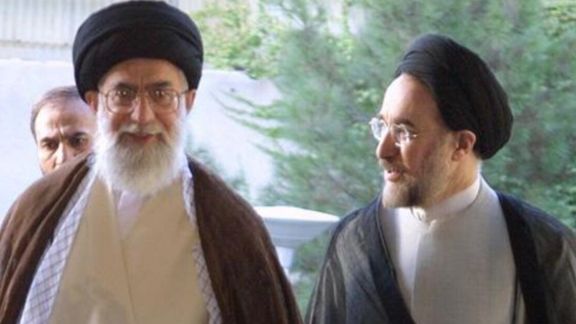
A senior aide to former reformist President Mohammad Khatami says his letter to Supreme Leader Ali Khamenei about the ongoing protests has not received a reply.
Mohammad Ali Abtahi, Khatami's chief of staff during his presidency in the late 1990s and early 2000s added that "There is no indication that the government has welcomed the reformists' suggestions for ending the ongoing violence” and bringing about a truce with protesters who have been fighting it in the streets for longer than two months now.
During the past week some conservatives and in particular the highly influential IRGC weekly publication Sobh-e Sadeq welcomed Khatami's ideas and characterized his suggestion of reforming the political system from within, which he called auto-reforms, as a step forward for Iran's reformists.
Khatami had also spoken against regime change, calling it "neither possible, nor desirable," although he regretted that "tens of people, many of whom are children and adolescents,” were killed during recent protests which he called "bitter events."
Abtahi said: "When the IRGC weekly characterized Khatami's statement as 'Good but not enough,' many took this as an invitation for Khatami to come forward and expound on his ideas. But nothing more has happened and the whole thing appears to be yet another article to sow discord in the society." Abtahi further reiterated that "Khatami's reformist views have not been accepted by the government."
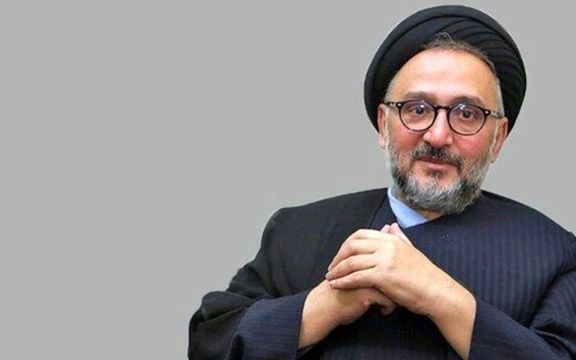
Abtahi also explained that Khatami has always distanced himself from both those who call for regime change and those who absolutely support the regime."
In the meantime, several reformist figures have held meetings with Judiciary Chief Gholamhossein Mohseni Ejei and security chief Ali Shamkhani, who has also held meetings with a few members of the families of the founder of the Islamic revolution Ayatollah Rouhollah Khomeini, and former president Akbar Hashemi Rafsanjani in a bid to seek their support for a move to pacify the people and put an end to the ongoing violence.
This comes while many in Iran doubt whether any of the two families have any influence on the protesters. Not only protesters have not expressed any support for the two dead clerics, but they have also criticized both for their role in suppressing human rights and civil liberties.

Meanwhile, other reports say that Khamenei's son Mojtaba has a held a meeting with Rafsanjani's daughter Fatemeh Hashemi with the same purpose in mind.
Shamkhani's office later denied that he had sought help from the two families and very little has been said about Ms. Hashemi's meeting with Mojtaba Khamenei. However, according to an Aftab News report on November 25, reformist figures including former Reform Front leaders Bezad Nabavi and Javad Eman, former lawmaker Mahmoud Sadeghi and Executives of Construction Party leader Hossein Marashi were present at the meetings with the security chief and judiciary chief last week.
The spokesman for Reform Front, Ali Shakouri Rad, told the press that "They offered their analysis of the ongoing developments and called for stopping plainclothes security forces' violence against protesters. They also called for respecting the people's right to protest and avoiding branding protesters as rioters particularly in the universities." Meanwhile, the reformists called for legal and democratic treatment of the detained protesters, Shakouri Rad said.
Another reformist figure, Fatemeh Rakei, the deputy chairperson of the Reform Front, complained that the government not only did not listen to the people's demands and complaints, but it also refused to apologize for the deadly violence it has used against protesters. "It might be too late for a reconciliation, but we can still stop violence," she added.
Neither reformist figures, nor the media said anything about the government's response. There is no indication whatsoever that the government is willing at all to listen to anyone.
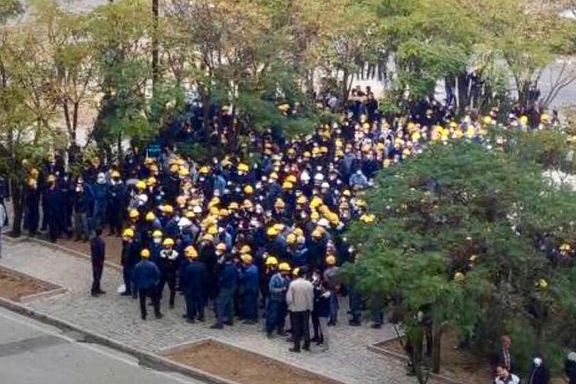
Reports from Iran say Truck Drivers’ Union has called for a nationwide strike while workers at steel and automobile factories have also stopped work on Saturday.
The workers of Esfahan Steel Company, Alvand SarmaAfarin Incorporation, Morattab Car Manufacturing, Safe Khodro Car Manufacturing Company, Qazvin’s Pars Appliances Company, and some others staged strikes during the day.
Esfahan Steel Company is a parent corporation with four thousand employees and a producer of construction steel and rails.
SarmaAfarin is a company in the air conditioning industry that was established half a century ago.
The Union of Truck-Owners and Truck Drivers has also published a general call for a 10-day strike starting November 26.
Reports by the Free Workers' Union say welding workers also went on strike at Bafaq Steel Complex in Kerman province in central Iran in protest to non-observance of safety measures that led to an explosion and the death of two of their colleagues.
In recent weeks workers at dozens of industrial units, including automobile manufacturing, household appliances, heavy industries, petrochemicals, oil, gas, sugarcane, etc., went on strike.
Shopkeepers and business owner in dozens of Iranian cities also closed their shops and went on strike many times for consecutive days in support of the uprising against the clerical regime.
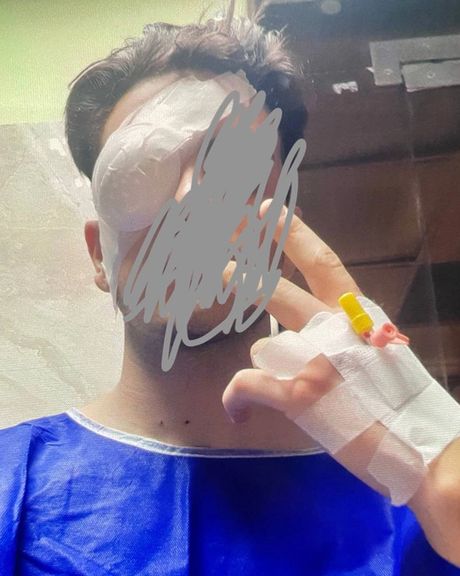
Dozens of ophthalmologists have warned against the use of shotgun ‘birdshots’ and other projectiles by Iran’s security forces that have blinded over 500 protesters since mid-September.
In a letter issued on Friday, a group of about 140 ophthalmologists said that a large number of protesters have been taken to medical centers hit by rubber bullets and metal pellets as well as paintball bullets in their eyes, leading to the loss of eyesight in one or both eyes.
Last week, another group of 230 ophthalmologists issued a similar letter warning about the loss of eyesight among protesters.
The Islamic Republic, which had been previously condemned for blinding protesters in the streets and has intensified the use of guns, including military weapons against unarmed protesters.

In an article on November 19, The New York Times cited ophthalmologists of three hospitals in the capital Tehran – namely Farabi, Rasoul Akram and Labbafinezhad -- and several doctors in Kordestan province, as saying that about 580 protesters suffered serious eye injuries during the regime’s crackdown.
The full scope of mass eye injuries has been largely concealed due to the internet blackout, but medical evidence given to The Times by doctors, protesters, family members of patients and rights groups revealed that ophthalmology wards in hospitals have been overwhelmed with eye injury victims. The range of injuries included mutilated retinas, severed optic nerves and punctured irises.
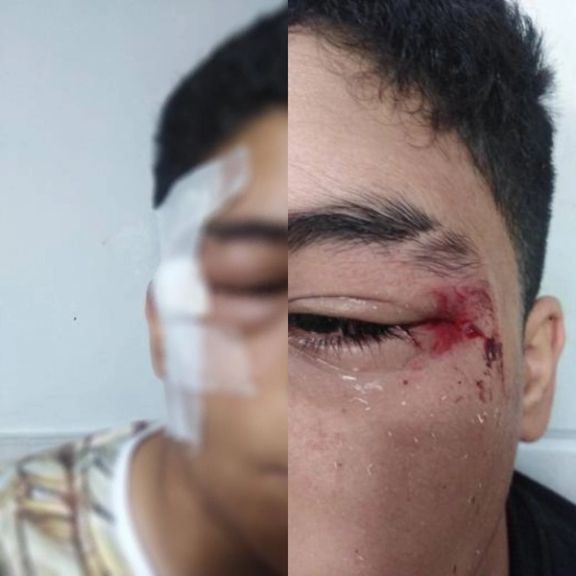
The regime’s security forces have been extensively using cartridges of shotshell loaded with numerous small balls or birdshots, or medium-sized buckshots as well as single large solid projectiles known as a slug to quash the protests across the country.
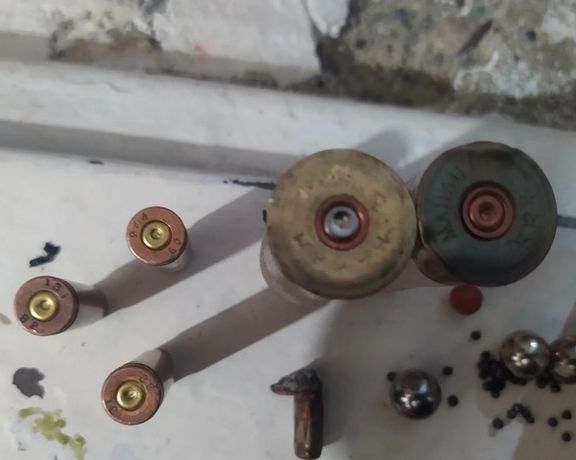
In an investigative report published on Friday, FRANCE 24 found evidence that shotgun cartridges manufactured by French-Italian manufacturer Cheddite have been widely used against Iranian protesters, an apparent violation of EU sanctions that went into place in 2012.
The team analyzed more than 100 photos and videos showing teargas canisters, rifle bullets, paintball projectiles and cartridges from shotguns. While most of the shotgun shells photographed were made in Iran, 13 shells recovered from eight different Iranian cities bore Cheddite logos from factories in Italy and France. The company claims to be the world’s largest maker of empty shotgun cartridges and firing caps, producing more than a billion empty cartridges every year.
Nicholas Marsh, a senior researcher at the Peace Research Institute Oslo (PRIO), told FRANCE 24 about Iran that "The regulation currently in force states that it is not allowed to sell shotguns of any type, ammunition designed for them and associated components. The restriction on firearms was added in an amendment on 24 March 2012. Since then, shotguns and their ammunition have been covered by the EU sanctions, and the sanctions are still in effect." The agency also quoted Amnesty International's researcher on arms control and human rights, Patrick Wilcken, as saying that “Cheddite has a responsibility to respect human rights; it should carry out human rights due diligence on its entire value chain and should cease supplies if there is a risk of goods being diverted into hands of serial human rights violators…”
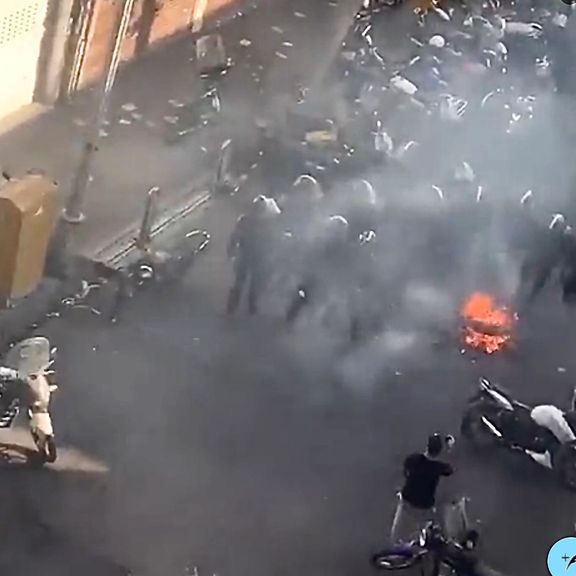
Canada’s Ministry of Foreign Affairs has strongly condemned the detention of demonstrators and the violent suppression of civilians in Iran.
In response to Iran International, a spokesperson for Canada’s Global Affairs Department categorically condemned Iran’s arrest of protestors and the continuing violent crackdown on people, which has caused additional deaths and injuries in blatant violation of their human rights.
“We urge Iran to meaningfully address the grievances of all of its citizens without discrimination and to protect and respect their right to peaceful protest,” said the spokesperson.
“We salute the courage of all Iranians, especially women and girls, who are exercising their right to freedom of expression and freedom of peaceful assembly and association. We join them in sending the regime a very clear message: they must end all forms of persecution and violence against women.”
On the other hand, Canada's ministers of foreign affairs, international development and the minister responsible for the Pacific Economic Development Agency of Canada, wrote in a joint statement that Ottawa will continue to stand firmly with the Iranian people and for the human right of women, girls and gender-diverse people.
“Right now, women in Iran are leading a powerful and necessary call to end violence against women and girls. The killing of Mahsa Amini while in the custody of the so-called morality police has sparked a courageous, global movement to stand up for a more fair and inclusive future for women and girls in Iran,” reads the statement.